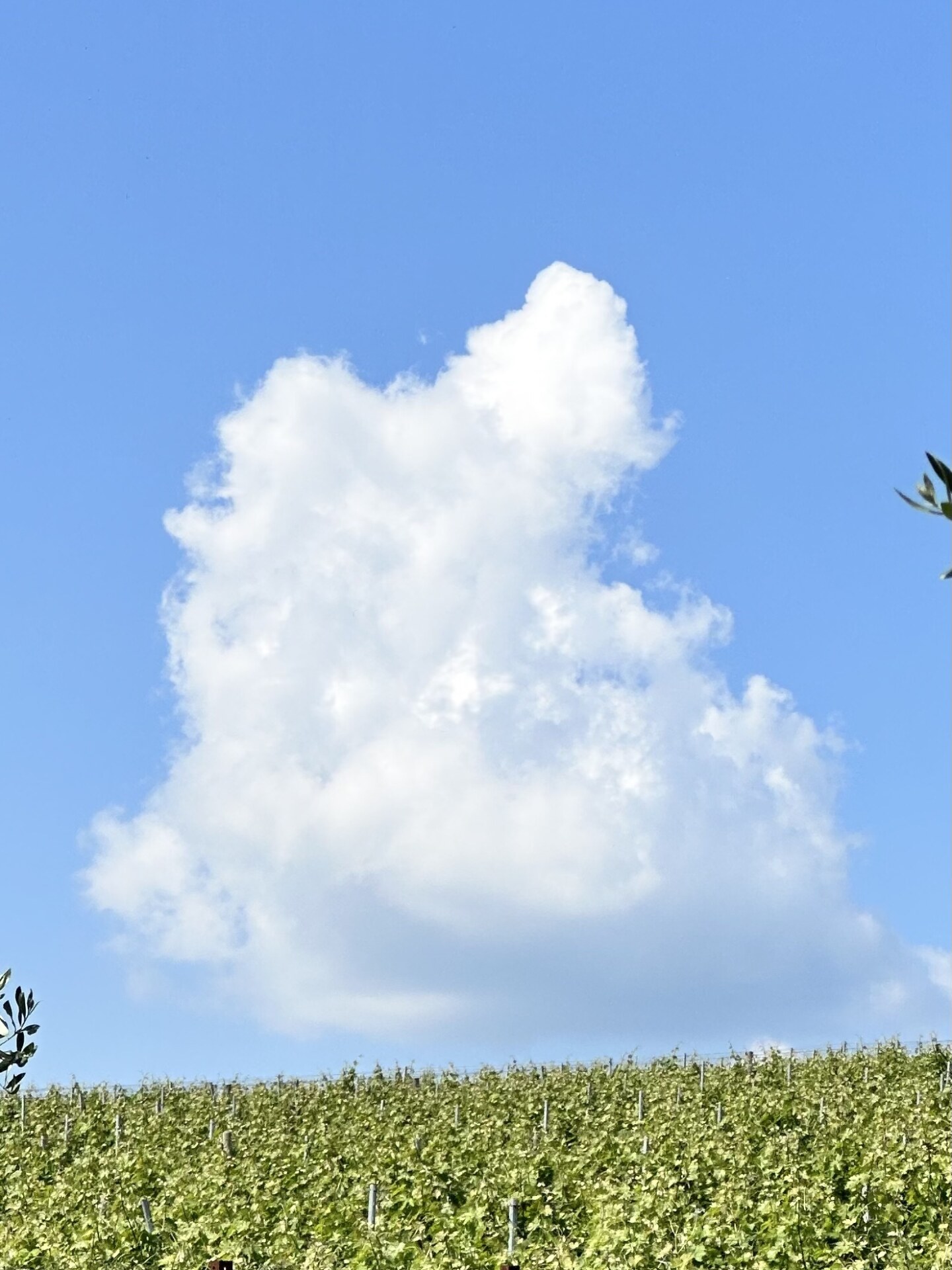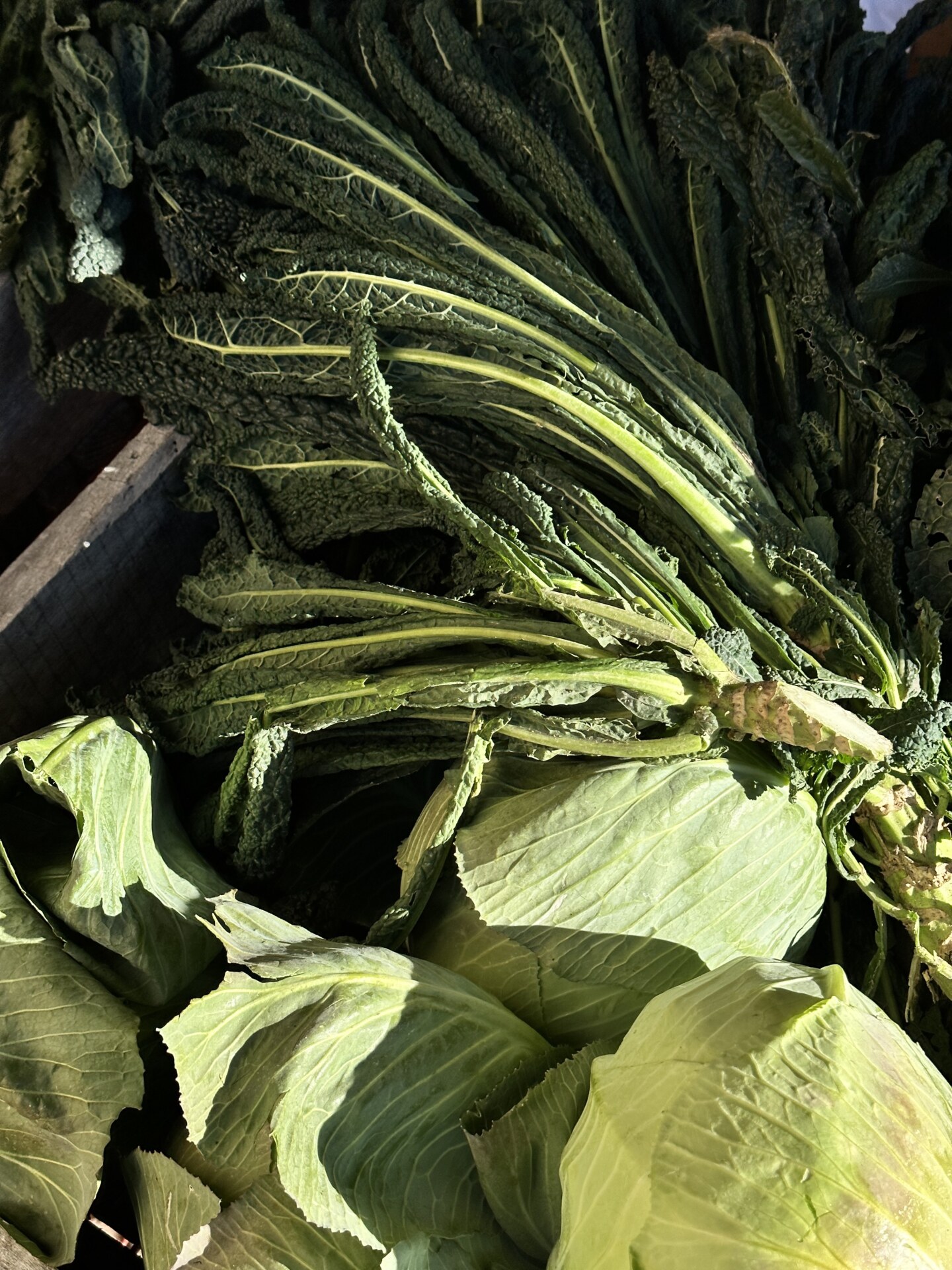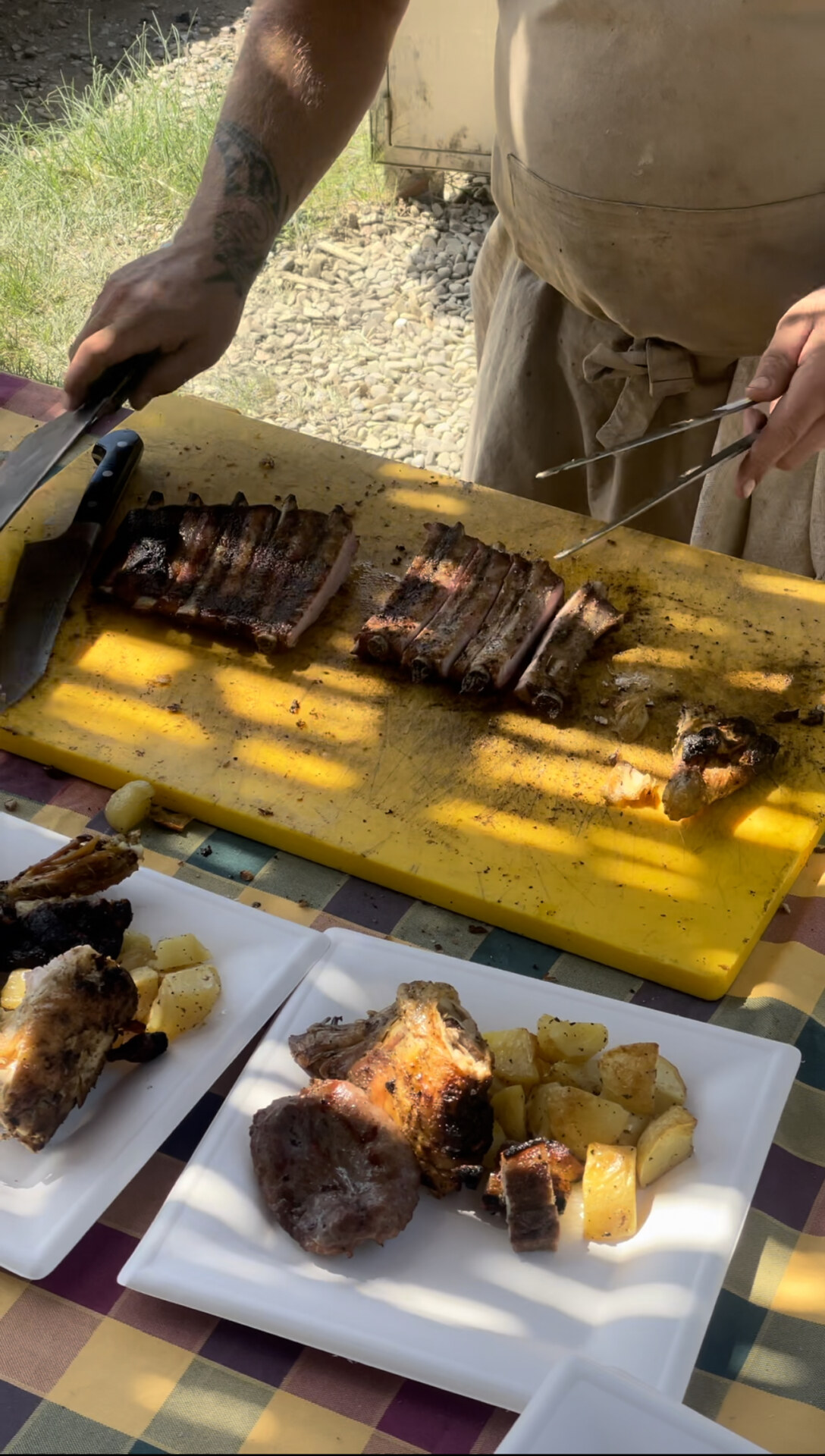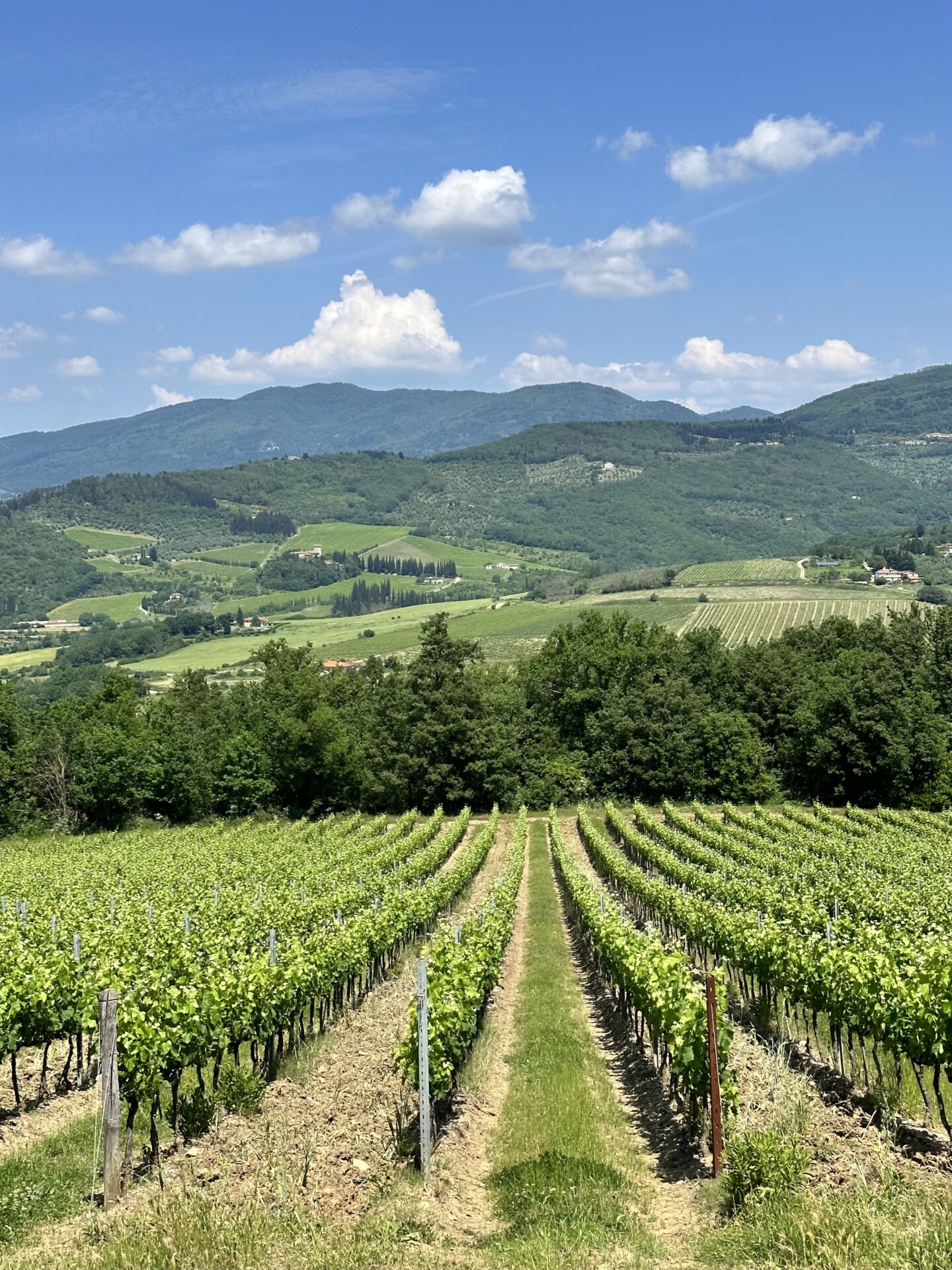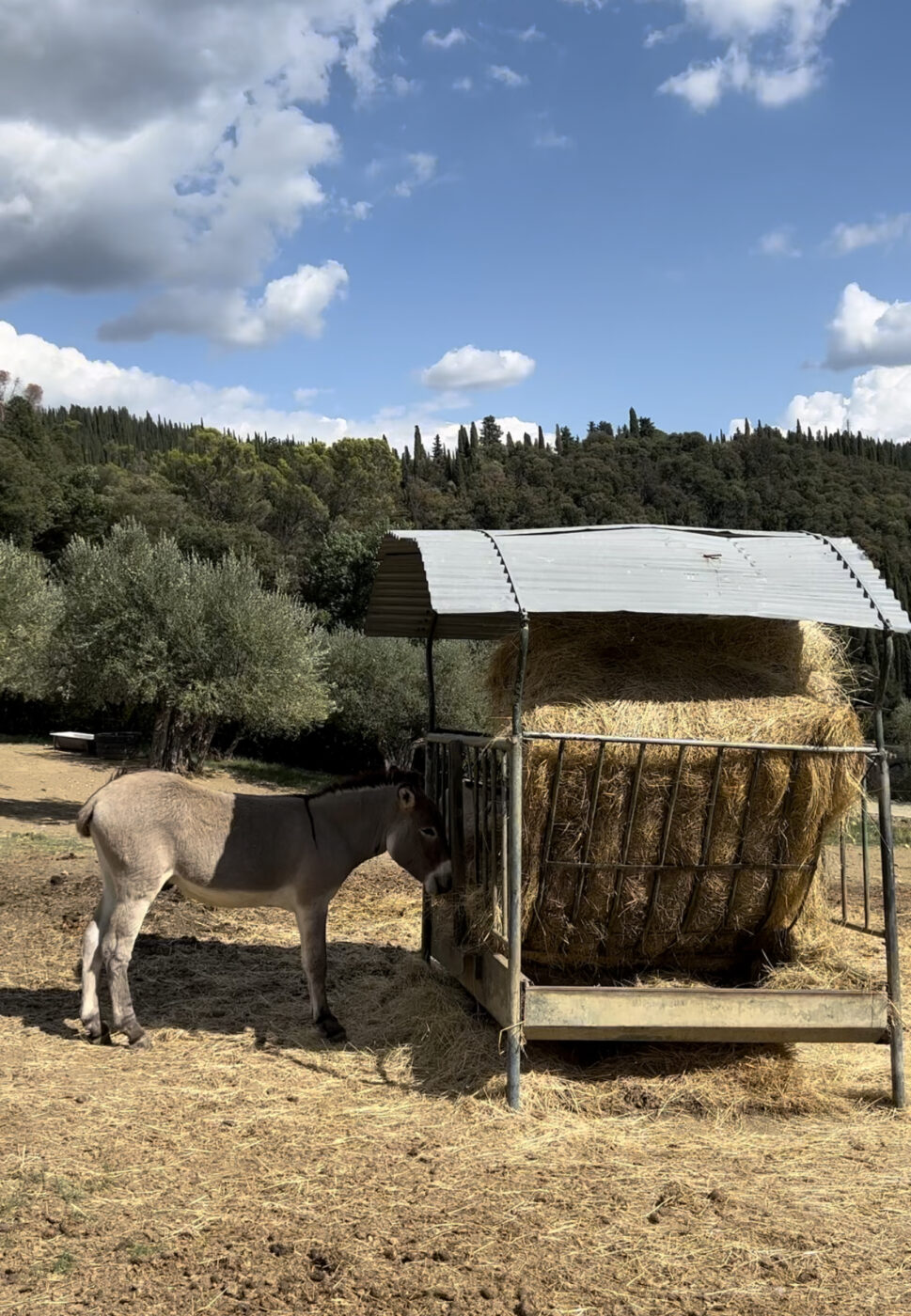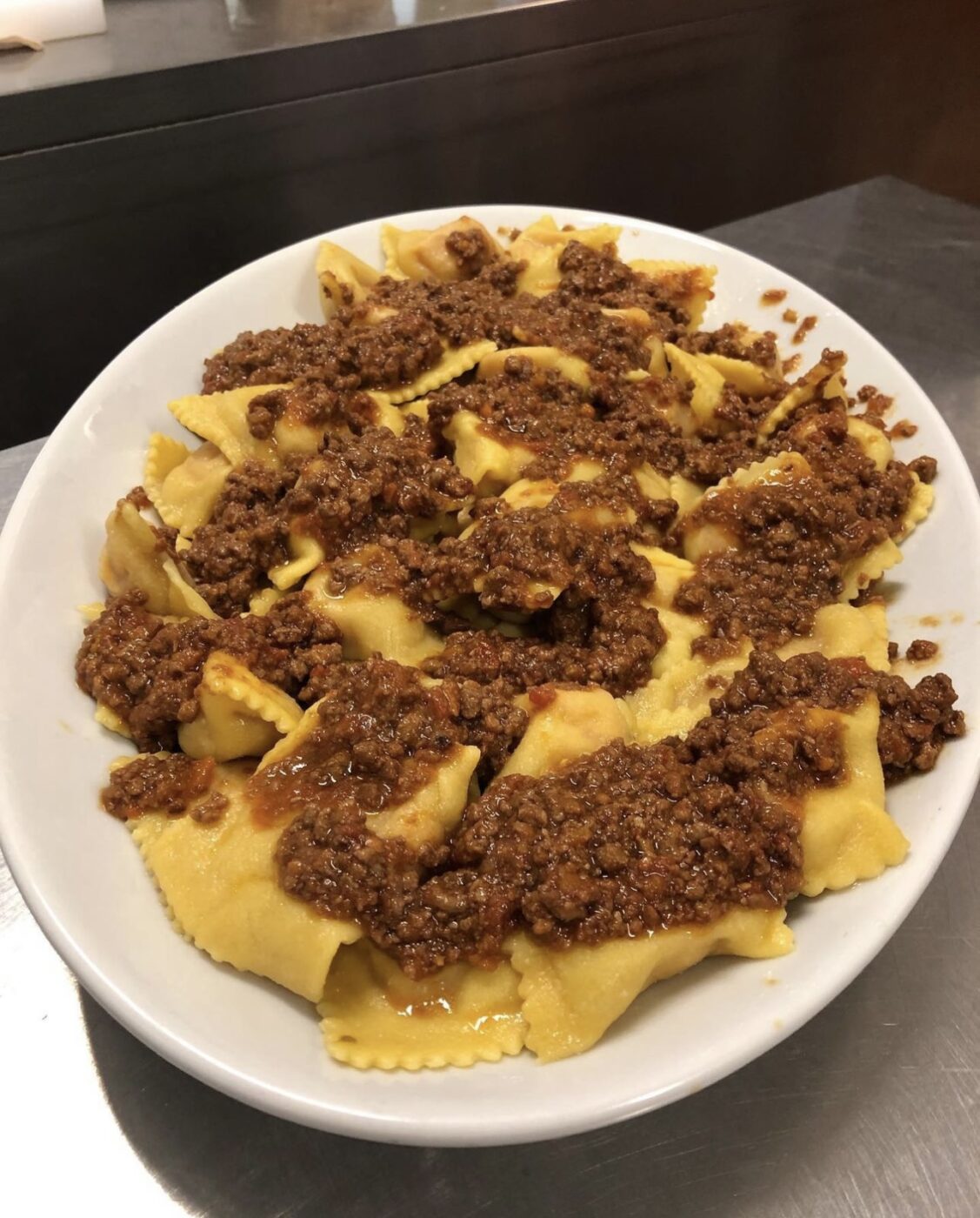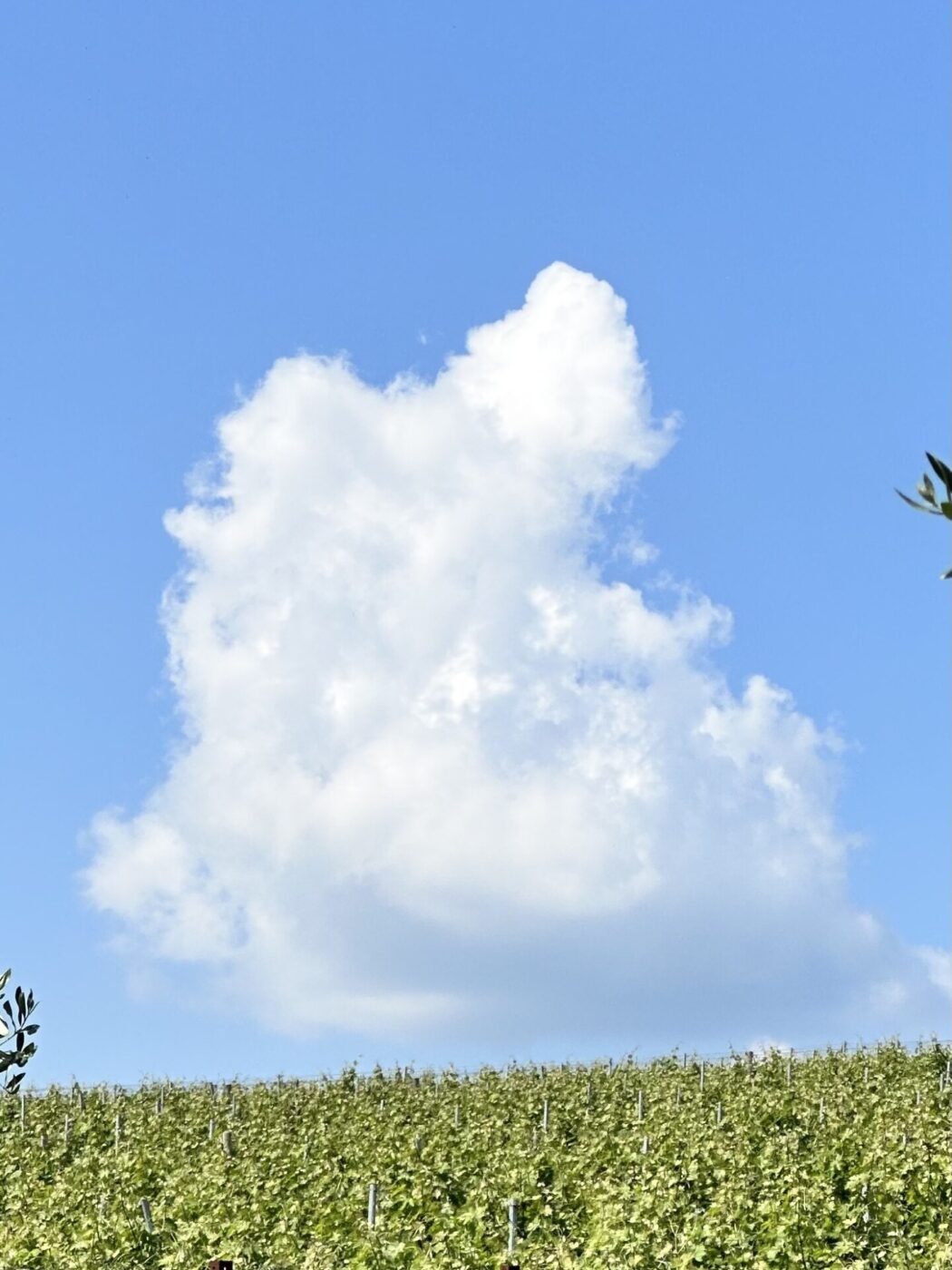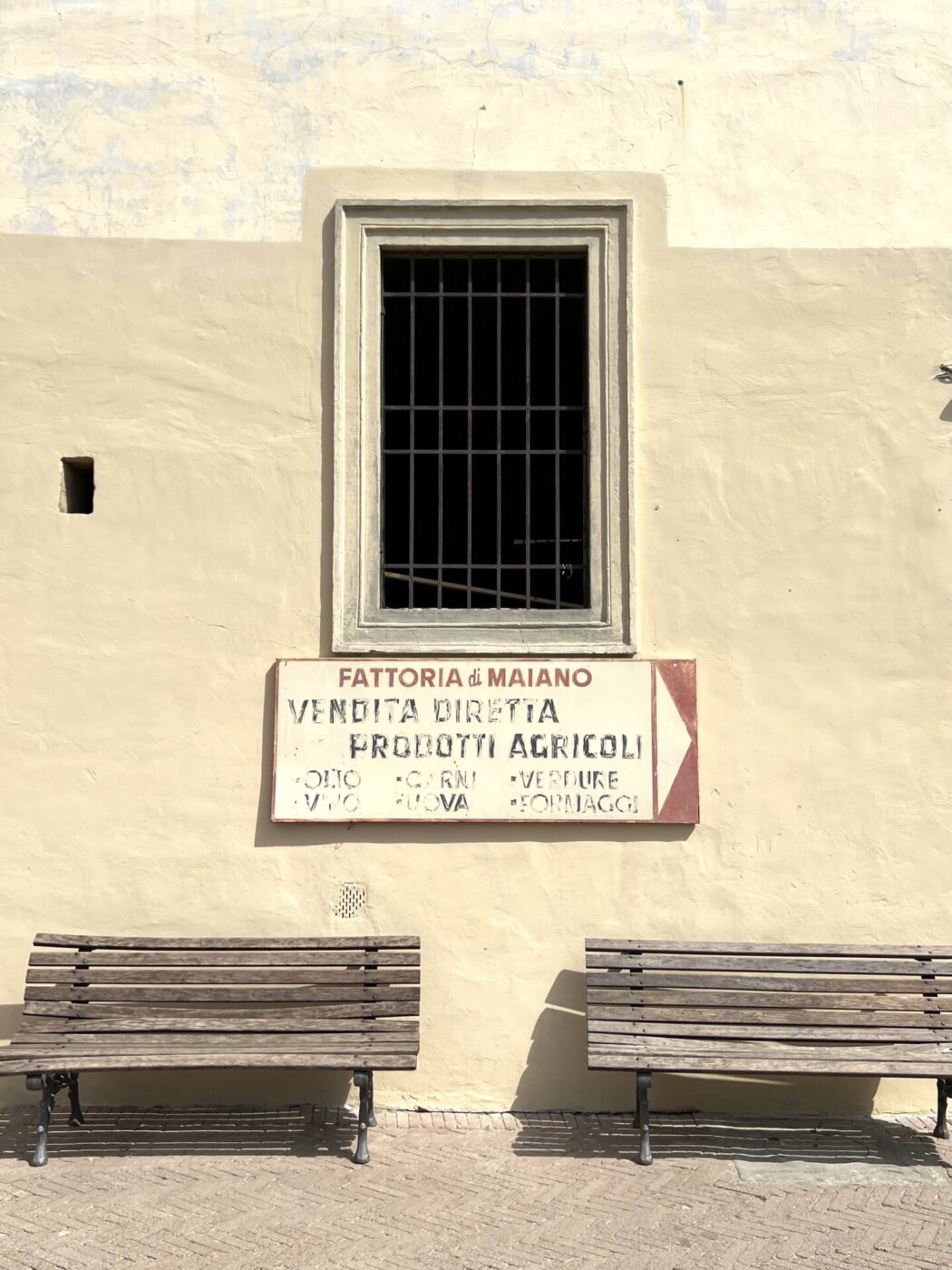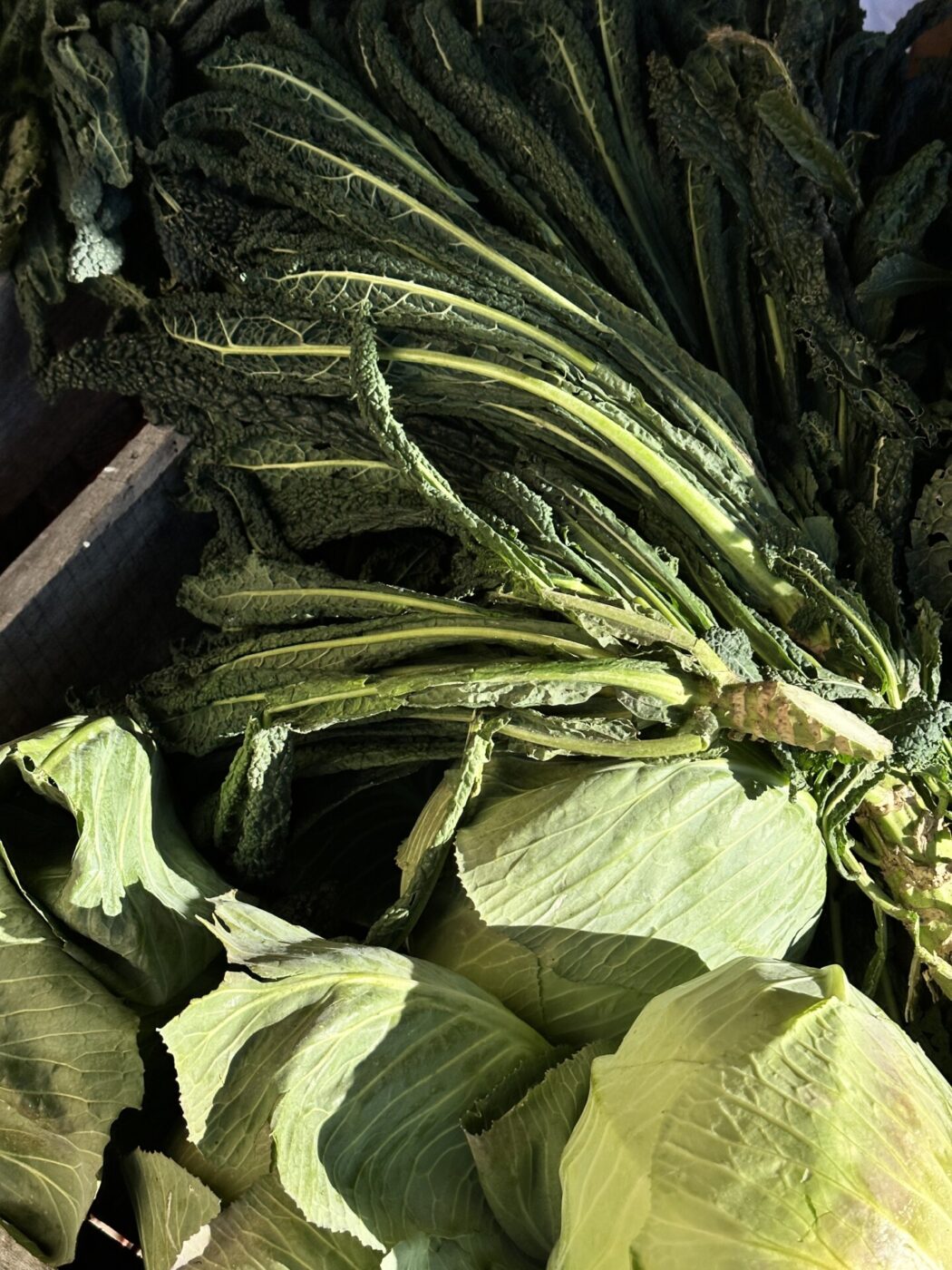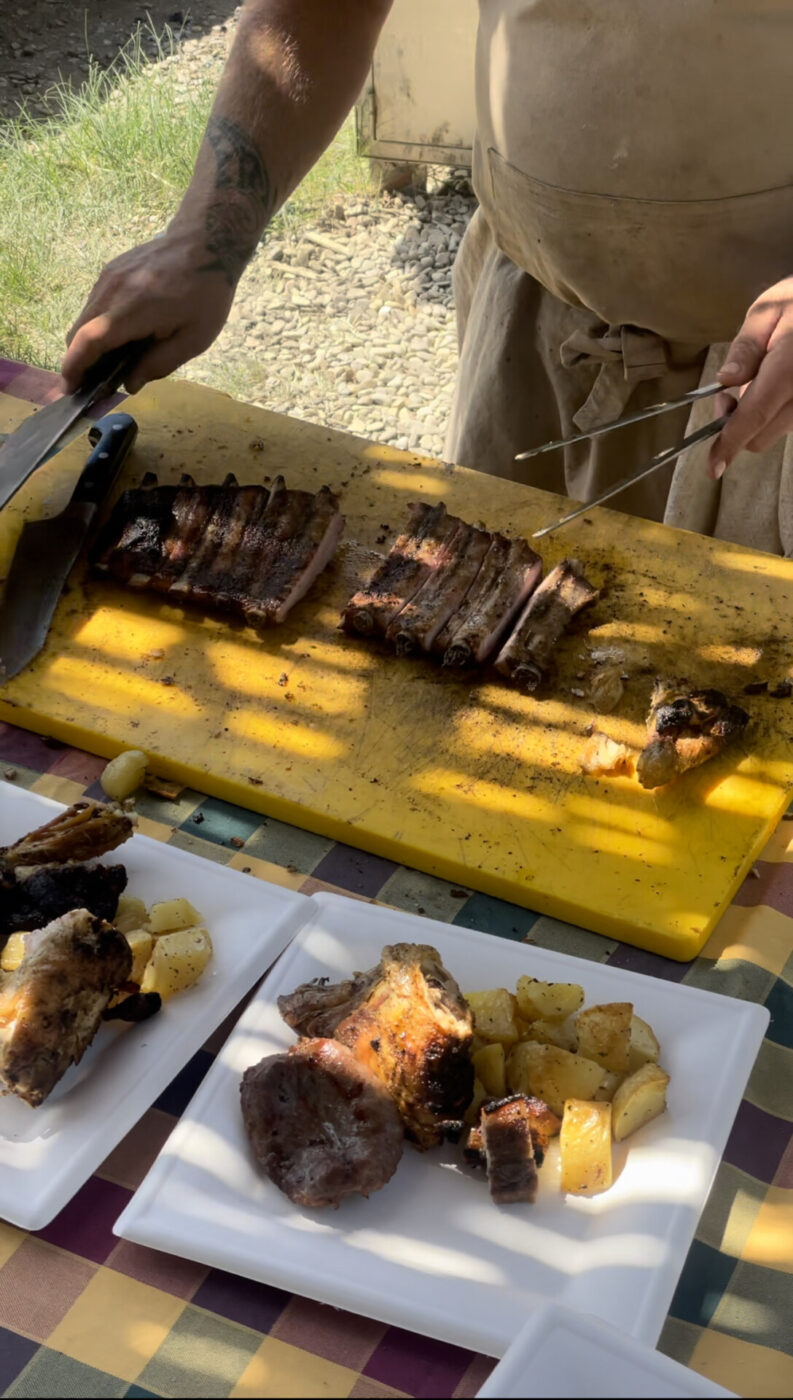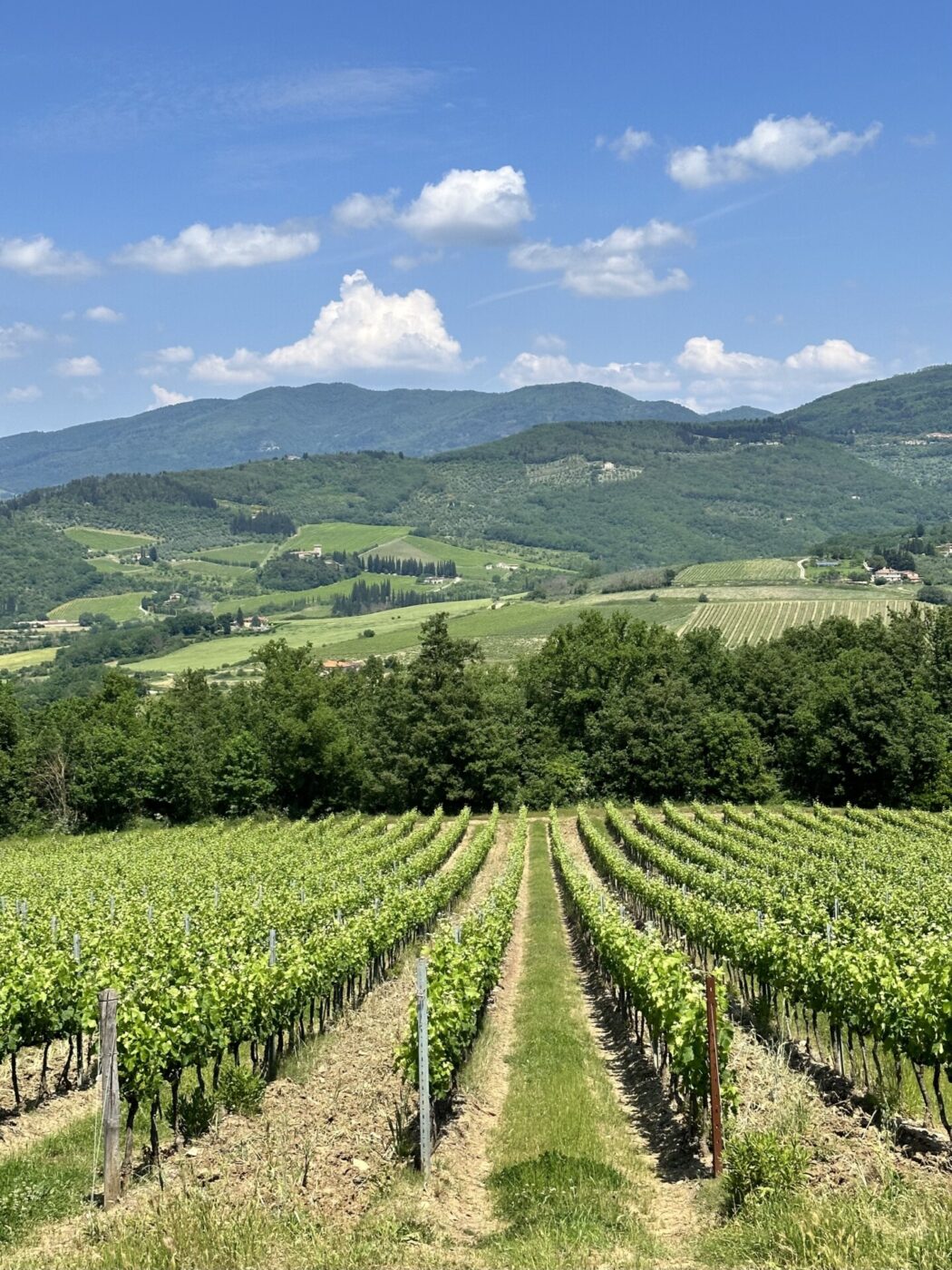FIESOLE
Perched on a hilltop 5 km outside of the city, Fiesole was actually the OG Florence, settled by the Etruscans in the 7th to 6th centuries BC. The city has sweeping views of the Tuscan capital, archeological sites, and centuries-old villas, gardens, and monasteries. Many universities–including Harvard, Georgetown, and the European University Institute–also have campuses here. Since before the Renaissance, the city has been a destination for members of the Florentine upper class (the Medicis had a villa here) and, today, is the wealthiest suburb of Florence.
Fattoria di Maiano
Via Benedetto da Maiano 11, 50014 Fiesole
Among the wooded slopes and marble quarry sits Fattoria di Maiano, the largest agricultural resort in the Florentine hills. Established in 1412, the three-hundred hectare farm features endless activities: walk along the Fattoria’s stone mason streets, visit the oil mill and taste their extra virgin olive oil, stroll through the labyrinth of olive groves, and visit their organic farm to see goats, horses, cows, donkeys, geese, ducks, and even ostriches. Fifty hectares of the grounds are botanic gardens that include the Romantic Queen’s Park, inaugurated by Queen Victoria in 1893 and established 20 years earlier by Sir John Temple Leader–the son of English industrialists. In 1844, lost among the hills of Fiesole, Leader decided to purchase the Borgo and the Villa di Maiano and embarked on subsequent neo-medieval renovations across the estate, including the park and gardens, the bridge crossing the estate’s Laghetto delle Colonne, and the tea house.
Lo Spaccio, their farm kitchen, is entirely rooted in the region’s territory, both in the dishes and in ingredients. The Tuscan menu changes weekly, opting for in-season, local produce from their garden and the surrounding hills. They also use locally cured meats and cheeses as well as their own olive oil, all of which is available for purchase in their store.
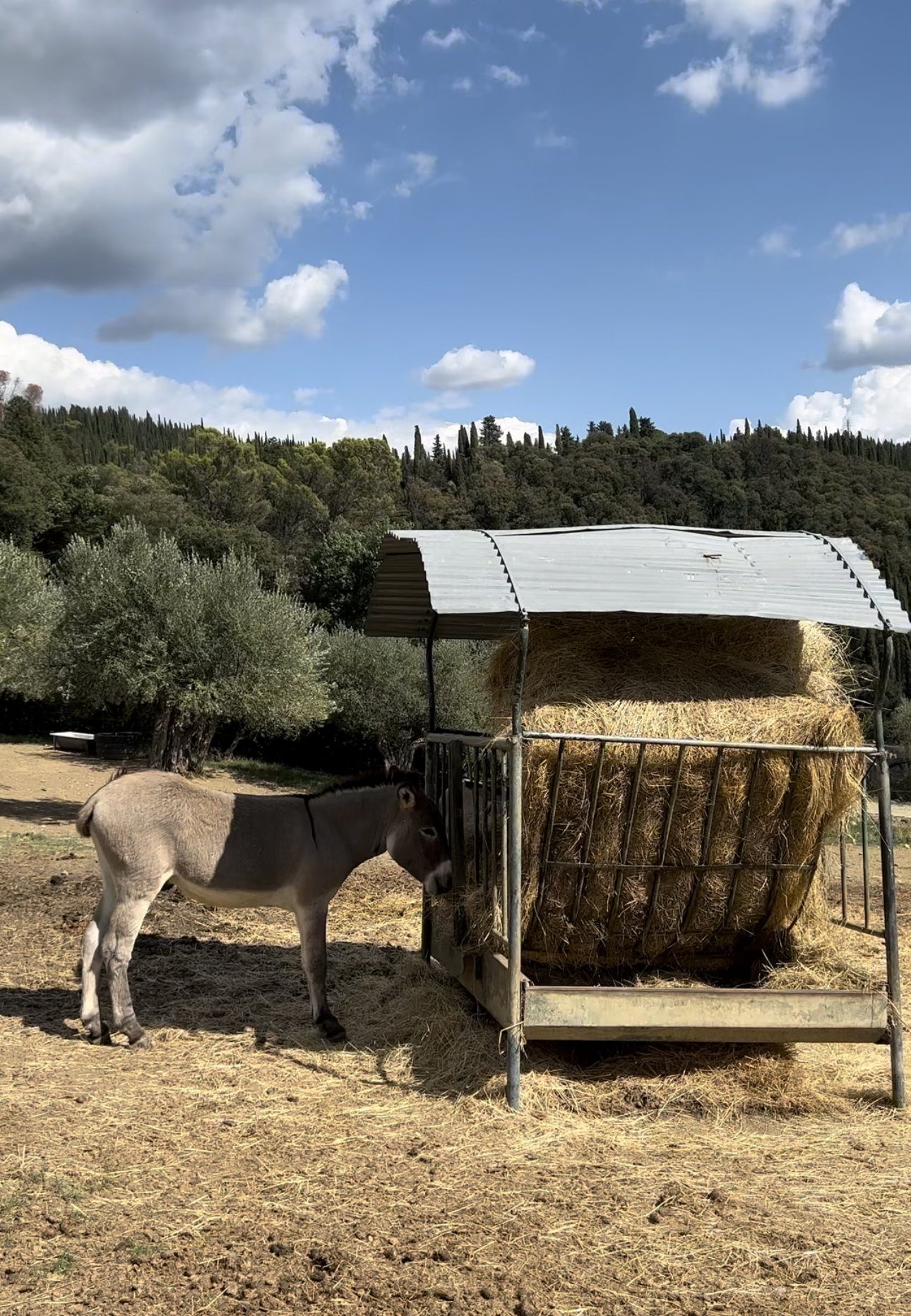
Villa Peyron & Bosco di Fontelucente
Via di Vincigliata 2, 50014 Fiesole
Built over Etruscan ruins, the estate of Villa Peyron and Bosco di Fontelucente looks like the setting of a fairytale: covered almost entirely in lilac bushes, the five, perfectly manicured terraces slope downwards towards Florence, offering unobstructed views of the city to the south and nearby Castel di Pioggio to the east. The stone villa sits against the verdant Fontelucente Woods–named for the particular wood found within–and a 16th-century spring that provides water to lakes and numerous fountains that dot the estate’s neo-Renaissance gardens. The century-old grounds have undergone various renovations over the years, and the family pays immense attention to the upkeep and maintenance of the villa. To visit the villa, its gardens, and the Fontelucente Forest, reserve a ticket at least five days in advance.
Teatro Romano Fiesole
Via Portigiani 1, 50014 Fiesole
The tiered, outdoor amphitheater Teatro Romano Fiesole is one of Tuscany’s oldest, positioned on a slope in Fiesole’s panoramic hills. When it was uncovered in the 19th century, the ancient Roman amphitheater was in virtually immaculate condition, unlike most of the other ruins in Fiesole. With very little reconstruction, the theater (and its small museum) have become a highlight of Florence’s attractions and an event venue for summer concerts, including the famous Estate Fiesolana festival with over 70 performers. You can buy tickets for the museum and amphitheater there, or in advance for one of the shows.
Trattoria Tremoto
Via Bolognese 16, 50014 Pian di San Bartolo, Fiesole
Red and white checkered tablecloths, wooden chairs, and wood-paneled walls: this classic Italian trattoria by Luciano and Giuliano Fabiani stands out for their typical Florentine dishes. Start with mixed crostini and a selection of Tuscan meats and cheeses (their finocchiona is homemade, and outstanding). Follow with a dish of homemade pasta, either tortelli mugellani or tagliatelle al cinghiale, and a second course of fried braciola or roasted suckling piglet. Their wine menu features the best local reds. The trattoria’s adjacent grocery store sells the meat, cheese, condiments, and other ingredients you can find on the menu, as well as incredible, made-to-order panini.
Ristorante Tullio a Montebeni
Via di Ontignano 48 Montebeni, 50014, Fiesole
A charming town right by Fiesole, Montebeni is surrounded by agricultural fields and woods. On the narrow, curved Via di Ontignano running through the middle of town, farmers and hunters used to meet at the family-run “La Bottega di Tullio” to purchase fruit, vegetables, cold drinks, and snacks prior to a day of caccia. The bottega first opened in 1958; however, Tullio’s grandparents, Mario and Emilia, began to make “hot food” for their clientele, often with the animals they caught on their hunt. Slowly, their grocery store transformed into the Tuscan trattoria it is today. Their menu includes local specialties such as ribollita, bistecca alla fiorentina, and their speciality, fried steak! Vegetarians, try their Spaghetti Cavalieri made with skinned tomatoes, celery, and carrots, or their fried pecorino. Last but certainly not least, don’t miss the dolce della casa, their grandmother’s blackberry jam tart, best enjoyed with a glass of vin santo. Closed on Mondays and open for lunch on the weekend, book your spot in advance to enjoy a meal on their shaded terrace.
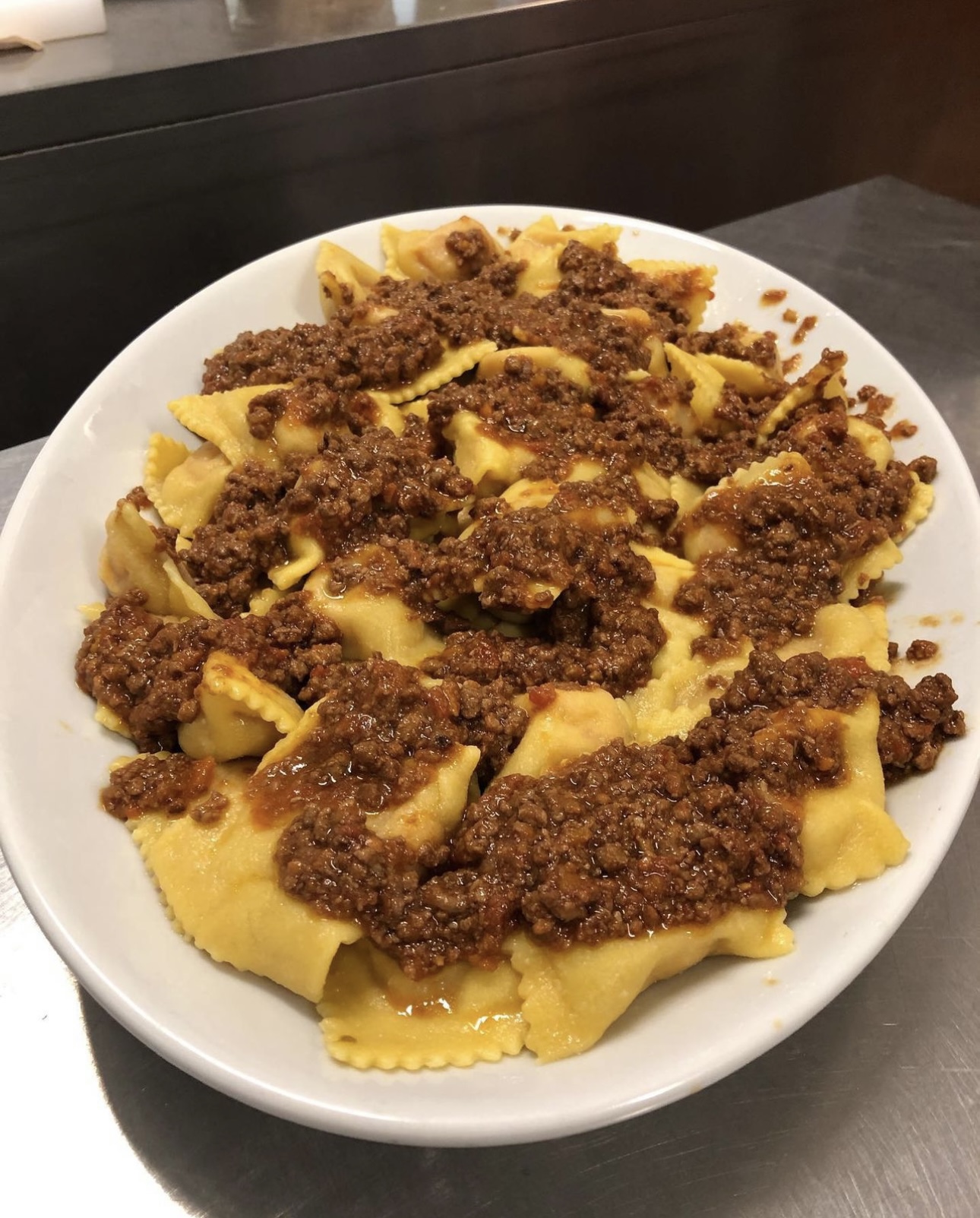
Ristorante Tullio
MONTUGHI HILL
Museo Stibbert & Gardens
Via Federico Stibbert 26, Florence
On the Montughi hill north of Florence, visit the Stibbert Museum, housed in Villa Mezzeri, Villa Rosselini, and their gardens. The museum is the private collection of renowned Anglo-Florentine Frederick Stibbert, the former owner of Villa Mezzeri. An avid art collector, Stibbert requested in his will that his villa and gardens be transformed into a museum and opened to the public. You would be remiss not to plan a day trip to Montighi to see Stibbert’s eclectic porcelains, fake ruins, naturalistic mise-en-poses, and suits of armor.
SCANDICCI
Gucci ArtLab
Via delle Nazioni Unite 1, 50018 Scandicci
The Medicis were particularly prominent in popularizing Italian fashion, and the city’s contemporary fashion scene is equally as influential. In 1921, Guccio Gucci founded the global fashion house Gucci in Florence, but it was his son Aldo who launched the brand into a global fashion empire throughout the Italian dolce vita period. The holding company is still based in Florence, and, in 2018, the Gucci ArtLab in Scandicci was opened under the direction of Gucci’s creative director Alessandro Michele. Their 37,000 sqm research lab and development center focuses on prototyping their leather goods, including handbags and footwear. Private visits are available upon request.
ARCETRI
Pian dei Giullari
Via del Pian dei Giullari, 50125 Firenze
If you type Pian dei Giullari into Google Maps, the subtext will say “Bus stop in Florence, Italy”. No, we have not added a bus stop to this list. Rather, Pian dei Giullari is a hilly area just outside of Florence, perfect for a summertime passeggiata on quiet, breezy streets surrounded by blooming flowers. It’s only 10 minutes from the city center via taxi (or bus), but you’ll feel like you’re deep in the Tuscan countryside. The hillside is home to an endless series of historical Florentine villas perfect for admiring along your walk.
Osservatorio di Arcetri
Largo Enrico Fermi, 5, 50125 Firenze
Named after its position on the Arcetri hill, this observatory has become one of Italy’s most prominent points of astronomical research, second only to Florence’s famous astronomer, Galileo Galilei. Founded by Giovan Battista Donati and Wilhelm Tempel in 1869, this research center studies minor systems in the celestial sphere, as well as astrobiology, the laboratory analysis of material samples taken from the surface of asteroids. The observatory offers guided tours where guests can participate in astronomy courses, experience tactile models of modern telescopes and the stars, and view the nighttime sky through their historic Amici Telescope. Reservations can be made via the observatory’s official email.
If you’re planning a trip to Florence this summer, contact our bespoke travel team for more of our tips and tricks on the best experiences, personalized to your preferences and needs, in and around the marvelous city.
